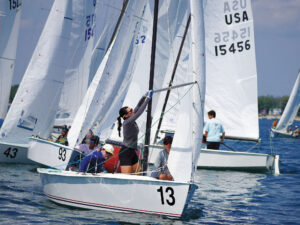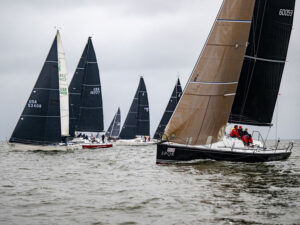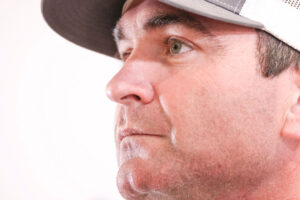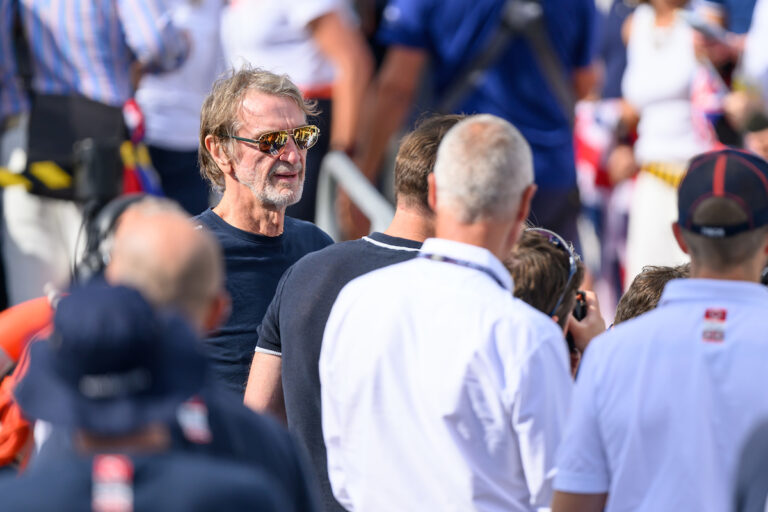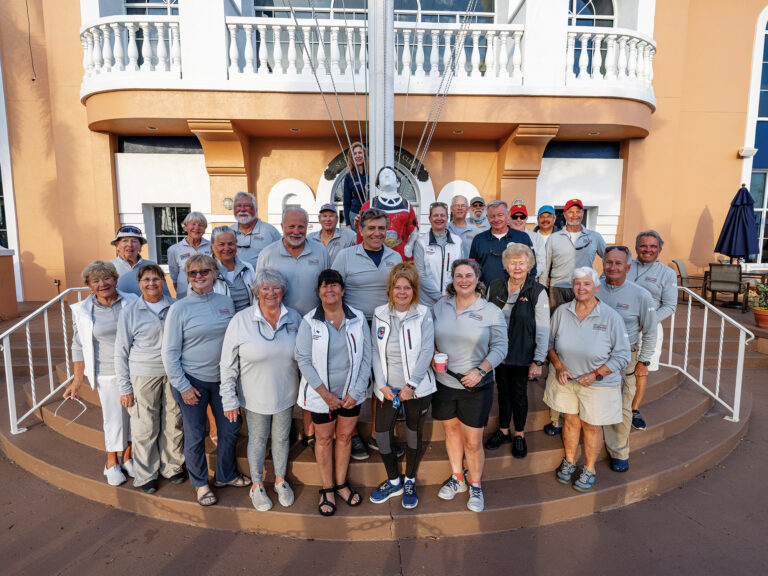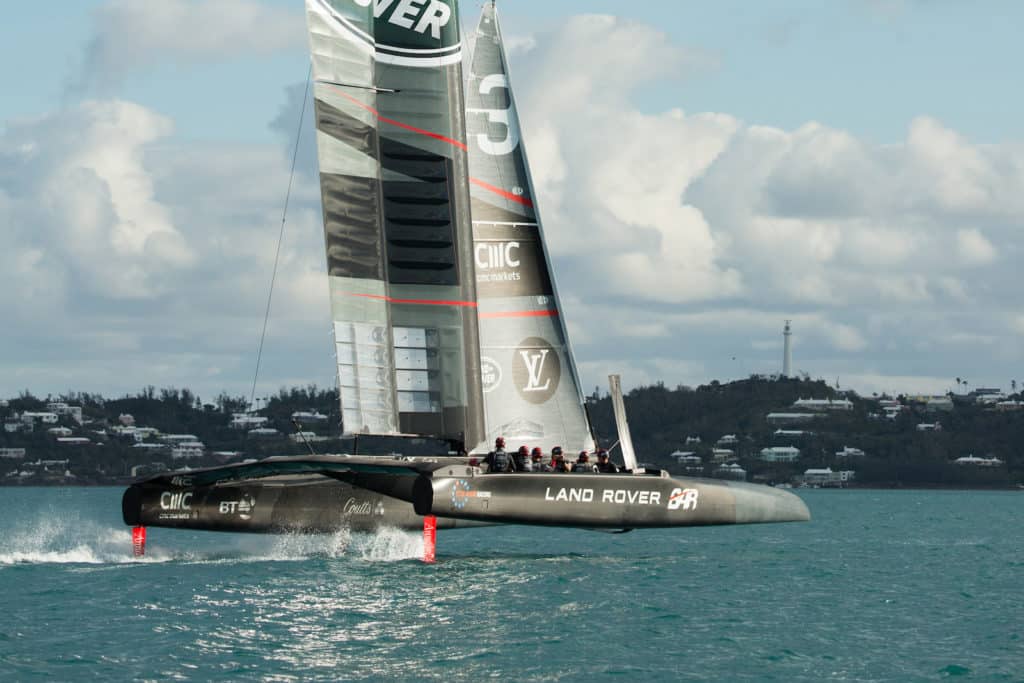
It could hardly be more deliberate to display the British nationality of an America’s Cup team than to represent the Royal Yacht Squadron, the club that has been redolent of British yachting since its formation in 1815 and the provider of the very trophy that is the object of this competition and the obsession of many. Its very connection with the RYS has ensured financial security, particularly because it has interested the younger members of the Royal Family — who would refuse to support an interest of the Duchess of Cambridge? The team’s behavior, on and off the course, has a degree of impeccability about it, as one would expect of one with such background.
Led by four-time Olympic gold medalist, Sir Ben Ainslie, Land Rover BAR has maximized its efforts to retain its nationality in the crew to recover the trophy its club lost 166 years ago, but not without seeking the best talent elsewhere for the few gaps in the team’s makeup. In his own preparation leading up to this challenge, Ainslie has been part of three other nations’ teams (when there was no British team available): One World Challenge, Emirates Team New Zealand and Oracle Team USA. Ainslie believes he has gained considerable experience from these forays, as do many of his teammates who sought experience when there was not a British team in the Cup.
Having secured the necessary funding, Ainslie has assembled a sailing team rich in talent. He protects this with a design team of impeccable experience in their fields, led by CEO Martin Whitmarsh, a decorated engineer with experience in Formula 1 racing. “It relies upon the hundred people in Portsmouth, and several hundred people elsewhere,” says Whitmarsh, “being very focused on what we need to do to give Ben the quickest boat. First of all, we have got to locate and encourage that money to flow into the company,” Whitmarsh continues. “Then we have got to make sure that we use it wisely during the program itself to give the sailors a winning boat.”
Although he had to miss some of the America’s Cup World Series because of his Olympic commitments (following his skipper, he won Gold in the Finn), Giles Scott was a natural for the role of tactician. There appeared to be a downturn in BAR’s performance in the ACWS when Giles was absent, which should at least confirm his selection is wise.
Similar to his skipper, Scott had been with other teams while campaigning his Finn, and as 2014 was coming to a close, he called Ainslie, offering his services. Two weeks later, he was on the payroll but allowed to focus on Rio. “To get a shot at an Olympic medal — which I’ve managed to do — and then roll straight into the chance of winning an America’s Cup, not many people get that chance,” he says.
Matt Cornwall, known as “Cat Flap” (don’t ask), began his sailing with local Sea Scouts and remembers the experience was painful. “We didn’t have a good kit back then: no wetsuit or rubber gloves — just woolen gloves under washing-up gloves,” he says. Still, competitive sailing started when he was 14 on a boat owned by workers in a Lymington boatyard. They won the first race. He was hooked.
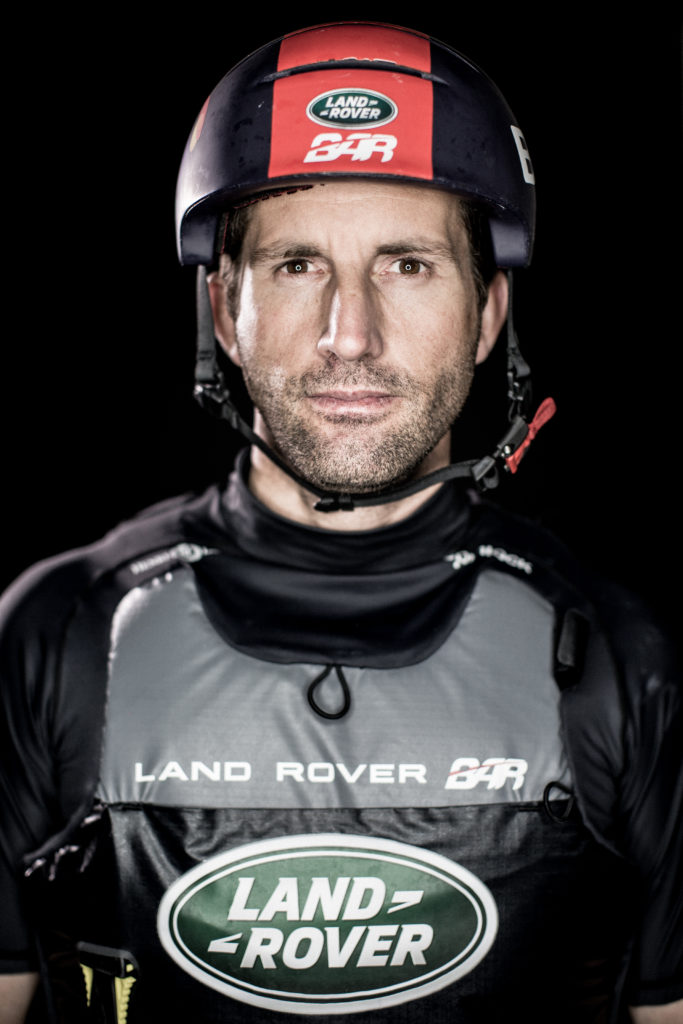
By the time he finished school and was at college, he realized there was money to be made in sailing. “I thought it would be cool for me to do that for a little while,” he says. Clearly, the move was a good one.
There is more of inevitability about the place of David “Freddie” Carr. “Racing for the country has been the mainstay of my life ever since I can remember,” he says. Hardly surprising since many of his early years were spent at the National Sailing Centre, where his father, Rod (now head of UK Sport), was a coach.
In summer 2007, Sir Keith Mills was assembling Team Origin, a British challenger for AC33, and Carr was one of the early hires. “I signed at the drop of a hat, for the same reasons that I signed for Land Rover BAR. It seemed like at 25 I had landed the dream job.”
All looked good until the event went to court and the team was paid off, but he spent the next Cup with Luna Rossa, alongside Paul Campbell-James and Max Sirena. Ainslie rang him in late November 2013, but he’d signed with Luna Rossa. Now he was conflicted. “I went for a pint with Dad and I asked: ‘Is it worth the gamble? I’m on to this sure thing with Luna Rossa.’ He said to me, ‘Imagine how you would feel, having had the opportunity to race with Ben, watching a British team win the America’s Cup.’ That was it, it’s all he had to say.”
For Ed Powys, there was something natural about joining this team. His father, Dave, is the base manager, and his mother, Jane, is BAR’s Bermuda logistics coordinator. They met in 1983 when Dave was a trimmer with the Victory campaign and Jane was team founder Peter de Savary’s personal assistant. By the time Ed was born, his father’s resume included other America’s Cups.
So Powys was always around sailing — first in Lymington, where there was “yachting memorabilia about the home.” When he was 7, he began Optimist sailing and says of it: “It was the first time I properly started doing it, going out and having to do it for myself. I figured out what it was all about.”
At the tender age of 10, Powys was asked to sail with a student match-racing team that included current teammates, Paul Campbell-James and David Carr. “It was quite entertaining, being a 10-year-old when they were all 18 — I was basically extra ballast.”
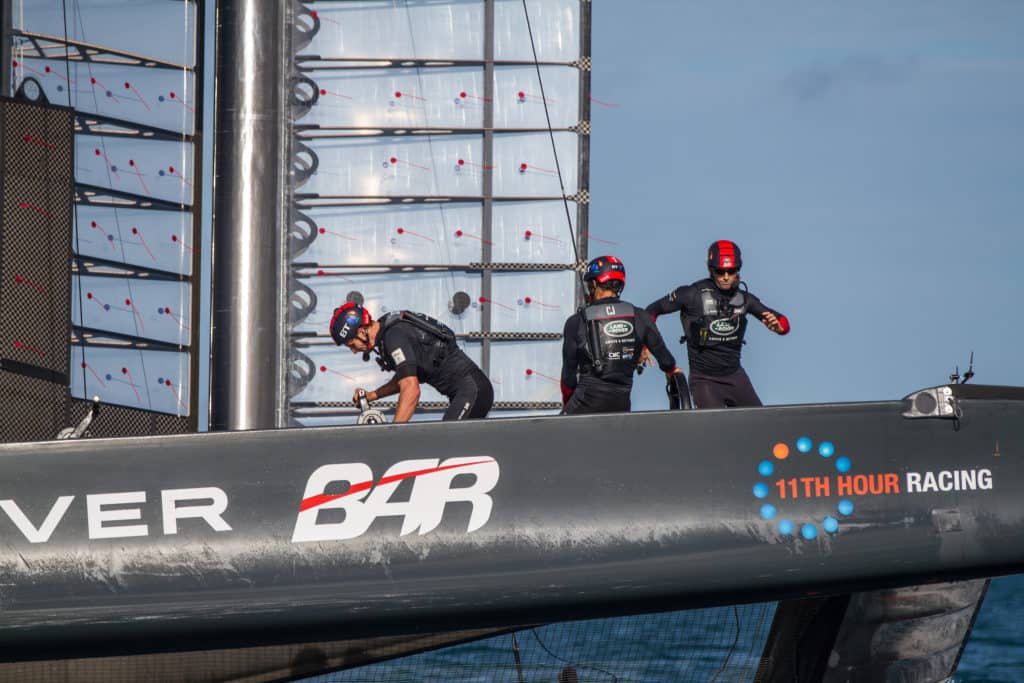
By the time he got to the end of his youth sailing career, Powys lacked the breakthrough result he needed to get support from the Royal Yachting Association’s Olympic development program. His parents stepped in and helped him buy an Olympic 49er, but by then he was at Brunel University earning a product-design degree, and the logistics were difficult.
“I stopped sailing. I did a little bit at the start of University, and then the last two years I didn’t really do any. At that stage, I was still fiercely competitive and frustrated at not being involved with all the 49er stuff, although logistically and financially it was impossible. I had friends who were doing it, and it was always in the back of my mind, ‘What’s the best way for me to get back into it?’ By now I was verging on being too big to steer, so even though I wasn’t sailing at the time, I made the decision in my head that I was going to switch and try to do some crewing at any opportunity.”
Powys joined Dave Evans in late 2009 in the 49er. They were training with Steve Morrison and Ben Rhodes, gold and silver medalists at the World Championships in 2007 and 2008. They worked hard, learned a lot and progressed quickly. Part of Powys’ credibility is his proven ability in the 49er.
And what of young Nick Hutton? He too has the classic background of a homegrown professional sailor. His parents took him with them as they cruised their Folkboat; he honed his skills dinghy sailing in Optimists, then on to Cadets and 420s — the latter as crew for Paul Campbell-James. The Extreme series — first with Shirley Robertson and then with Luna Rossa team — was his transition into multihull racing. His employment by Richard Branson as an instructor on Necker Island, however, gave him an opportunity to seek advice from the billionaire: the British team or an offer from Luna Rossa? He was asked in return: How would he feel if Ben Ainslie Racing won while he was with the Italians? No argument there.
To keep these and the other sailing team members working as a unit, Ainslie made the inspired choice of Jono Macbeth, a New Zealander, as sailing team manager, whose Cup roots go back 20 years to the days of Peter Blake. Earlier, he was a performance athlete — not out of place in today’s Cup environment. He knew from the outset he wanted sailing to be a career. He moved from Team New Zealand to BMW Oracle for the Deed of Gift match, and stayed with the Americans for the next Cup cycle. He says his best race was the last race of 2013. “It fulfilled every dream,” he claims, but he could still add to his Cup wins as a sailor, this time as a first reserve grinder.

